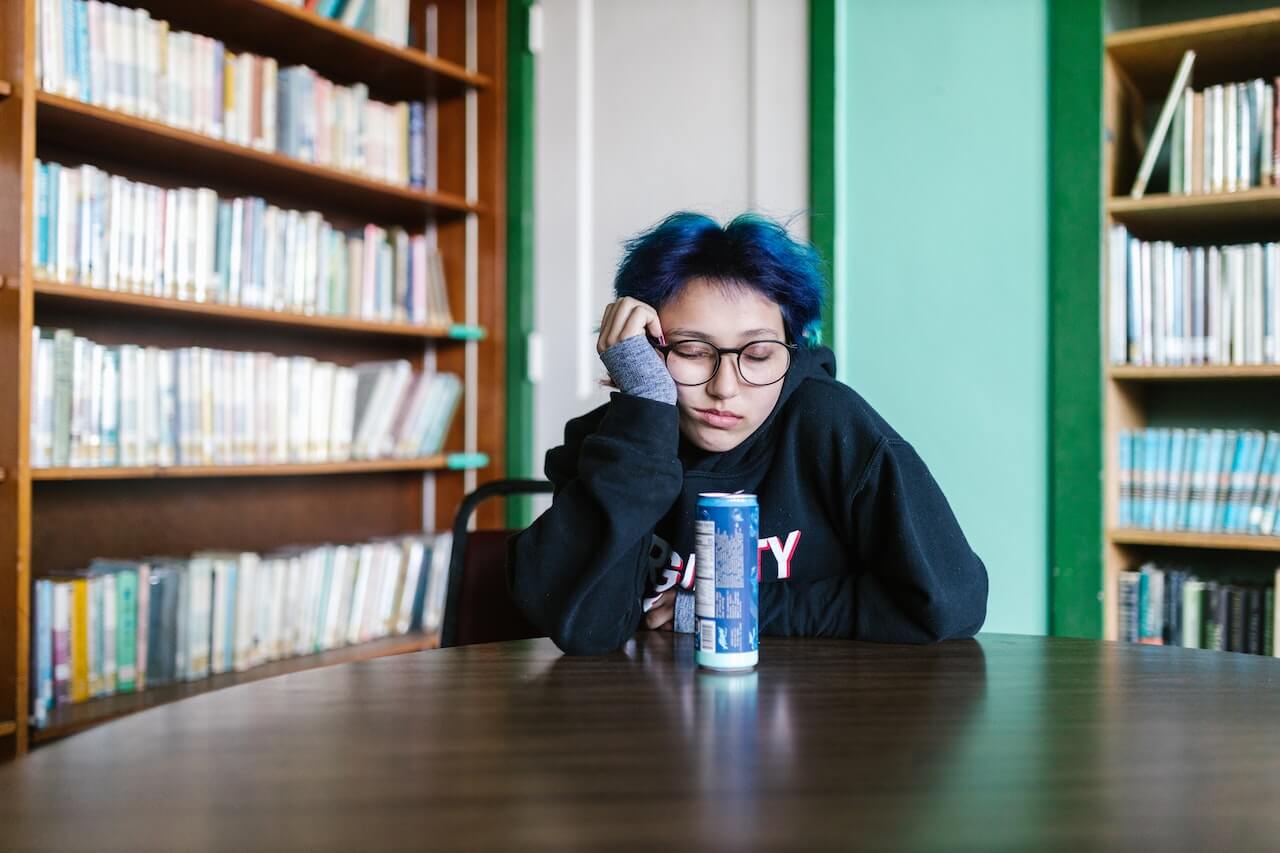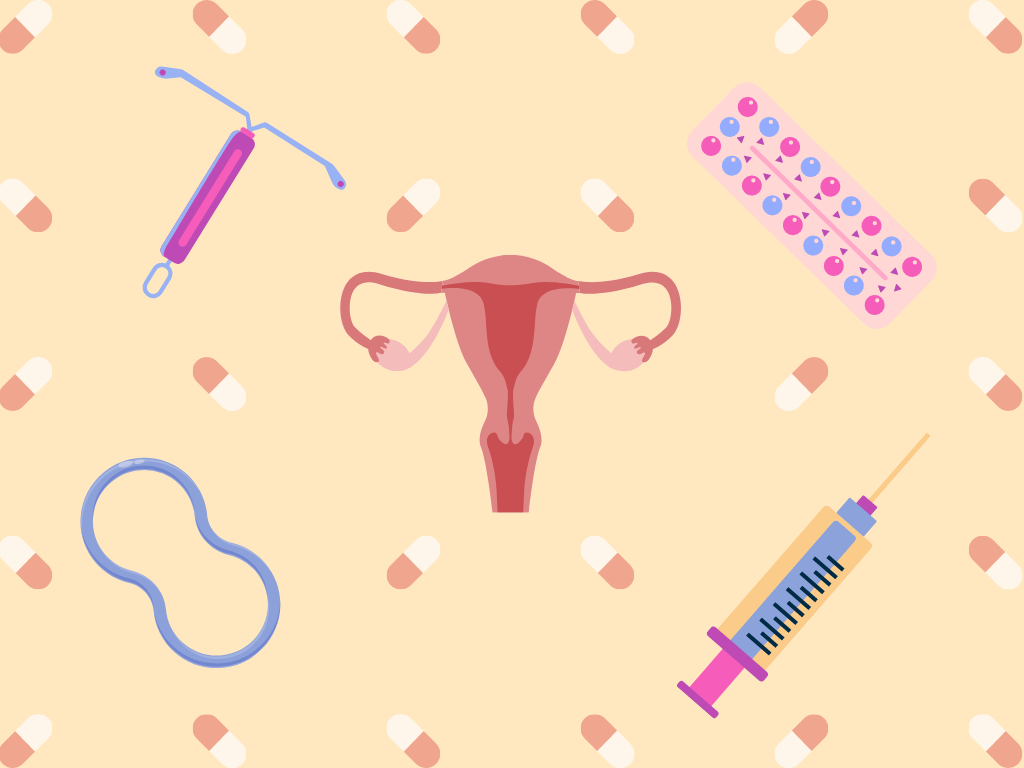I was 30 days sober when I sat across a desk from my new psychiatrist.
I had been seeing some form of mental health professionals since I was a teenager and had started developing mental health issues that worried my parents. I was now 23 — and for the first time since I was 13, I was completely sober from drugs and alcohol.
I expected the same diagnosis I always got: clinical depression and anxiety. I was fully prepared to hear him say, “Here are some SSRIs that will make you gain weight and turn you into a gray, emotionless shell of yourself. Good luck!”
That’s why I laughed out loud when my doctor said “I think you have ADHD.”
Was he kidding? My little brother who couldn’t sit still in class and never did his homework has ADHD. The only time I got in trouble in school was when I refused to put the book I was reading away. I was great at school, graduated college, and had a job. There is no way I have ADHD.
“Many girls and women go undiagnosed and are actually misdiagnosed. They’re given SSRI antidepressants which can actually have the opposite effect on ADHD brains. This leads many women with ADHD to self-medicate with substances," he explained.
That, combined with my family history of abuse and the prevalence of addiction in the LGBTQ+ community, put me at risk in ways I hadn't fully understood. "The system has failed you," he continued. "I’m sorry.”
I was flabbergasted.
I had never come across a psychiatrist that cared enough to look deeper behind the surface. I attribute that to the fact that I hadn’t been honest about my drinking and drug use, combined with a lack of information among the psychiatric community.
My newfound sobriety allowed me to be properly diagnosed, and I finally had an explanation for the way I felt my entire life: like I was broken and no one could fix it. My psychiatrist sent me home with a number of books about ADHD, adult ADHD, and ADHD in women. He also set me up for a test that gave me the official diagnosis of ADHD.
It was the beginning of a huge shift in my life.
Too long; didn't read
• The ADHD brain struggles to produce enough dopamine, causing it to seek dopamine-seeking activities, like food, sleep, sex, alcohol, and other drugs.
• LGBTQ+ people with ADHD have a higher risk of struggling with addiction.
• Attending cognitive behavioral therapy and taking prescribed stimulant medication may help reduce the likelihood of addiction and break the pattern of searching for stimulation.
LGBTQ+ individuals and addiction

The statistics
- An estimated 20-30% of the LGBTQ+ community have substance use disorders
- 15% of people with ADHD have substance use disorders
- Amongst the adolescents who seek recovery from addiction, 25% of them are diagnosable with ADHD
- Research has also shown that LGBTQ+ people are more likely to be neurodivergent in the first place, which includes a higher prevalence of ADHD
Put another way?
A person who happens to be a member of the LGBTQ+ community and has ADHD is at a huge risk for struggling with addiction. This dangerous crossover is not one that is talked about enough in either the ADHD or LGBTQ+ community spaces.
The causes of addiction
We know fairly little about addiction, as research and data has only been seriously gathered and executed over the past 50 years or so. We know that addiction is hereditary, but we also know that addiction can be triggered as a result of trauma.
Struggles in the LGBTQ+ community
LGBTQ+ individuals happen to face much more trauma than the average person. They deal with rejection from their families, communities, and religious organizations; many have also experienced bullying, repression, and harassment.
Hate crimes, murder, and harassment of the LGBTQ+ community runs rampant, especially amongst transgender and non-binary communities. There is a higher rate of HIV and AIDS in the LGBTQ+ community because of the prevalence of intravenous drug use and unprotected sex.
This means that those in the LGBTQ+ community — especially those who survived the AIDS epidemic of the 80s — have likely experienced great tragedy and loss in their communities.
Additionally, the discrimination of LGBTQ+ people leads to higher rates of HIV, because of the high rate of homelessness and inability to get health insurance and care.
Trauma and PTSD
Research has proven that stress and trauma accumulates within communities, particularly marginalized ones. Drug abuse is a self-prescribed way to numb pain and forget trauma, which is why so many people who suffer from PTSD also suffer from substance use disorder.
The risk of being marginalized
Those of us in the LGBTQ+ community often turn to substances to numb the feelings of rejection, pain, and loneliness we feel. Marginalized communities tend to have the strongest ties because of the intolerance from all other communities.
Because of this, substance abuse spreads as it becomes normalized within the LGBTQ+ community. As the LGBTQ+ community tries their best to heal from a system that continues to harm them, drugs and alcohol have been a welcome self-prescribed medication to soothe the pain.
The undeniable link between ADHD and addiction
What is ADHD?
The nature of what we know about ADHD suggests it may be a recipe for addictive tendencies. The name ADHD is deceiving since people with ADHD don’t necessarily lack attention — we have too much of it and we struggle with regulating it.
ADHD occurs when someone is born with a brain that struggles to produce certain neurotransmitters — particularly dopamine and norepinephrine. This means our brains are always seeking stimulation and dopamine-releasing activities.
Dopamine
What releases dopamine?
Stimulant drugs (cocaine, crack, meth) especially target the dopamine receptors in the brain, which is why many ADHD drug-users say the first time using drugs like these made them feel “normal” for the first time.
A predisposition for addiction
At that first appointment with the psychiatrist who finally diagnosed me correctly, he told me that my pattern of substance abuse made sense for someone with ADHD.
When I was in any situation that fed my creativity and kept me from getting bored — like a summer photography residency, or my time at a competitive art school — my substance abuse wasn’t as much of an issue. As soon as I left school and attempted to fit into a 9-5 job and lifestyle, my substance abuse issues went through the roof.
My doctor had another theory that set me on a long path of research. He suggested that many people who go undiagnosed with ADHD — and therefore go unmedicated during their formative years — are at a higher risk to develop substance abuse issues.
This went against everything I’d ever thought about stimulant medications like Adderall and Ritalin. He explained that providing the brain with the dopamine and norepinephrine it’s craving with regularity breaks the pattern of searching for stimulation.
That's why stimulant medications calm people with ADHD, rather than making them "speedy."
What do we do now?
With substance abuse having such deadly consequences, it's more important than ever that we educate marginalized communities about their risk of developing a substance use disorder, as well as encourage open conversation within these communities about addiction.
While it's true that those of us in the LGBTQ+ community in this generation do not face nearly as much hardship as our predecessors, we still have a long way to go. LGBTQ+ folks know how to keep secrets to protect themselves, and many of those who struggle with addiction struggle in solitude because of the stigma and shame associated with it.
Having the opportunity to share what’s going on may provide relief and support.
We also need to make more widely available the therapies and supports we know can help with ADHD and substance abuse. Access to therapies like CBT should be a given, not a privilege. It took me 23 years to find a doctor who was willing to sit down and truly listen to what was going on in my life.
He not only pushed me to get properly diagnosed, but he sent me on my way with resources to better understand myself, my brain, and my battle with addiction.
I hope that the psychiatric and addiction treatment community will work to better understand the links between the LGBTQ+ identity, the ADHD brain, and the vicious cycle of addiction.
It can change so many lives for the better.
It certainly changed mine.
Being neurodivergent or LGBTQ+ has many challenges—but you don’t have to face them alone. The Inflow app has tons of learning modules, a supportive community, and personal coaches to help you get unstuck and build confidence. Get started with Inflow today!


.jpeg)




